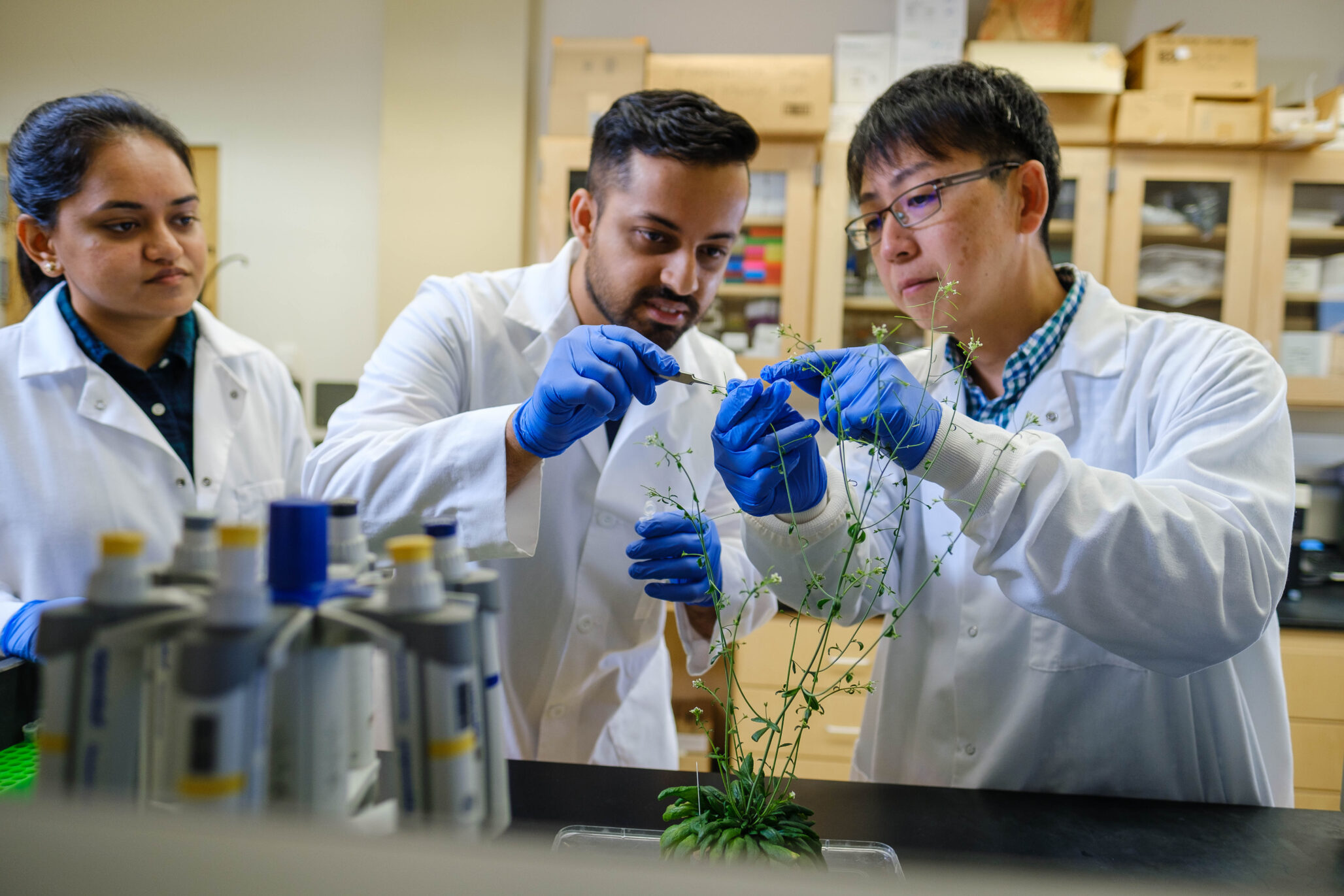The Kansas Wheat Commission invests $200,000 in a two-year project headed by Chris Miller, the senior director of research, innovation and quality at Engrain. Miller is laying the groundwork for a celiac-safe wheat — one that could still make a great-tasting, good-looking loaf of bread.
“This is a huge contribution to science — not just to Kansas, but to all of human health,” Miller says.
He will first identify the level of celiac disease reactivity in 300 different cultivars in four different categories: currently-planted Kansas wheat varieties, historically popular wheat varieties, new experimental wheat lines and wild wheat relatives.
Miller will literally put these samples to the test — relying on the reaction between human antibodies and wheat proteins.
To find the exact epitopes, or protein fragments, that react to human celiac disease antibodies, Miller will use a process called immunoprecipitation. In this process, a single antibody is adhered to the surface of a microscopic magnetic bead. The miniature magnets are then fixed to a surface — like hundreds of super tiny magnets stuck to a fridge.
Then, the proteins from a single wheat sample are washed over the surface. The reactive proteins stick, the others simply wash away.
From there, Miller can isolate and sequence the reactive cereal proteins. These sequences provide targets to sequence the specific genes that cause a human celiac disease reaction.












